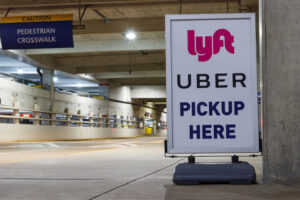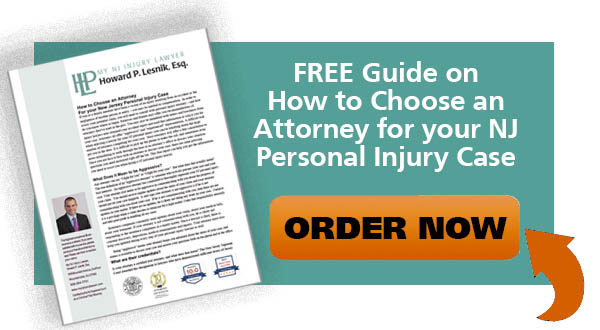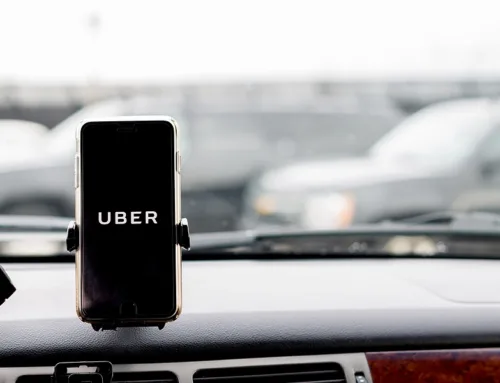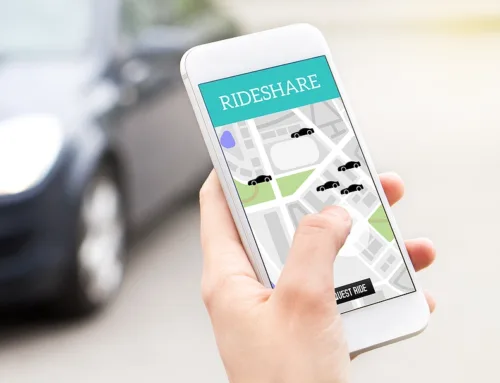If you suffer a serious injury in an automotive accident in which someone else was at fault, you may be entitled to a sizable sum of money in compensation for your injuries – but the amount of compensation your injuries merit doesn’t always match the actual value of the insurance payout you receive. For severe injuries that courts tend to agree deserve high compensation figures, the real limiting factor is often the amount of insurance coverage carried by the driver responsible for your accident. It’s often not possible to collect more than the negligent driver’s policy limits – and many drivers carry only the bare minimum of coverage allowed by law. However, in cases wherein the culpable driver was actively working on a rideshare app such as Lyft, Uber, or any of several similar companies operating in cities nationwide, policy limits may be much higher. At the same time, making the arguments necessary to access those higher limits is more challenging.
 Rideshare services, or TNCs (Transportation Network Companies) such as Uber and Lyft operate on a “gig economy” model, in which the drivers are considered independent contractors, not employees of the company. Generally, the drivers are private individuals, using their own personal vehicles, and therefore in the event of an accident, the driver’s private auto insurance is the first step in seeking injury compensation. However, wary state legislators across the US have expressed concerns about individuals with minimal liability coverage transporting members of the public in a commercial context, and have passed legislation requiring rideshare drivers to carry more insurance coverage when they are engaged in commercial activity. In New Jersey, the requirements are specific, and cover the two distinct scenarios in which a driver is considered to be engaged by the rideshare company:
Rideshare services, or TNCs (Transportation Network Companies) such as Uber and Lyft operate on a “gig economy” model, in which the drivers are considered independent contractors, not employees of the company. Generally, the drivers are private individuals, using their own personal vehicles, and therefore in the event of an accident, the driver’s private auto insurance is the first step in seeking injury compensation. However, wary state legislators across the US have expressed concerns about individuals with minimal liability coverage transporting members of the public in a commercial context, and have passed legislation requiring rideshare drivers to carry more insurance coverage when they are engaged in commercial activity. In New Jersey, the requirements are specific, and cover the two distinct scenarios in which a driver is considered to be engaged by the rideshare company:
- The driver is logged into the app but not presently transporting a passenger. (The driver may be en route to a pickup, waiting at a customer’s location for them to enter the vehicle, or available to receive and accept a pickup request.) In this circumstance, the minimum coverage requirements are: primary liability coverage of $50,000 for death and bodily injury per person and $100,000 for death and bodily injury per accident, $25,000 for property damage, and PIP coverage and uninsured/underinsured motorist coverage as required by existing statutes.
- An arranged ride passenger is in the driver’s vehicle and being transported. In this circumstance, the minimum coverage mandates increase to: primary liability coverage of $1,500,000 for death, bodily injury, and property damage; primary medical payments benefits of $10,000 per person per accident (applying to and providing coverage for the benefit of the driver only); and uninsured/underinsured motorist coverage of $1,500,000.
For a severely injured accident victim, $1.5 million is far more likely to cover your medical expenses and other injury damages than the $15,000 minimum coverage allowed under New Jersey state law. If your damages exceed $1.5 million, it may be possible to access further insurance coverage by going after the TNC itself. The success of this approach will depend on the specific circumstances of your accident, and isn’t as straightforward as suing other types of companies due to the fact that drivers are considered contractors instead of employees. Still, if the damages you deserve for your injuries far exceed the amount of insurance coverage the driver carries, it may be worth trying to take on the TNC. Here are some approaches that your injury attorney might take.
- Vicarious Liability vs. Independent Contractors. Vicarious liability is the legal principle that an employer has a duty to control, train, and supervise its agents, and is therefore responsible for the negligent actions of those agents, even if the employer itself is not at fault. Due to the far greater degree of autonomy granted to independent contractors, vicarious liability often does not apply to the actions of contractors – unless the work involves an inherently dangerous activity, or the employer retains a higher level of control over the contractor’s actions. In rideshare cases, the point to focus on is that element of control. In New Jersey, TNCs are legally required to run a check on the driver’s criminal background and driving record before the driver is allowed to log onto their network, and the driver must furnish proof of motor vehicle inspection certificate for the personal vehicle they use for rideshares. In addition, the app software provides ratings and reviews of drivers by previous passengers. The idea here is to build a clear factual case that the software platform grants the company a high degree of control over its driver contractors. Further, if any details in the background and driving record checks, vehicle inspection, or passenger reviews suggests negligence or dangerous behavior, your attorney can further argue that the TNC was negligent in hiring or supervision of the driver who caused your accident, further cementing its liability.
- Common Carriers. Entities that “hold themselves out to the public as being in the business of transporting passengers” are considered common carriers, and New Jersey law holds such entities to a higher standard of care than private individuals. This is because the carrier is entrusted with the lives and safety of its passengers, who are helpless to defend themselves against danger while under its care and rely upon the carrier for safe transportation. By arguing that the TNC is a common carrier, your attorney can make the case that the company owed you a higher duty of care, which it breached in a way that resulted in your accident.
- Negligent App Design and Strict Liability. Distracted driving and driver fatigue are major causes of automotive accidents, each comparable to drunk driving in the danger they pose to all road users. If the circumstances of your accident suggest that negligent design of the app encouraged distracted or fatigued driving that resulted in a crash, you may be able to seek injury compensation from the TNC on the grounds of product liability. Does the app allow drivers to view potential customer locations while their vehicle is in motion? Does the app force drivers to accept a ride request within a handful of seconds, or else the request is passed on to another driver instead? How long does the app allow drivers to remain logged in and accepting ride requests without breaks? The goal here is to demonstrate that the app suffers from defective design, meaning that it is flawed in such a way that makes it unreasonably dangerous even when used as intended. If defective design can be proven, the manufacturer is strictly liable, which means that no evidence of actual negligence or criminal intent is necessary for them to bear liability.
Seeking compensation from a TNC is not without its challenges; you’ll be going up against the lawyers of a big corporation, and if you were a passenger in a rideshare, there may have been an arbitration clause in the app’s terms of service (which may or may not be legally enforceable in your particular jurisdiction). Still, if your injuries are severe and the damages you are owed are high enough, your personal injury attorney may determine that it’s worth taking on the TNC to fight for the fair compensation you deserve for your injuries.
Contact MyNJInjuryLawyer Howard P. Lesnik
If you or a loved one suffered a rideshare injury in NJ, you should contact an attorney familiar with handling these claims. An experienced NJ Injury Lawyer will know how to obtain medical records, videos, photographs, experts, locate witnesses and contact the insurance company so you can make a claim for your injuries. My NJ Injury Lawyer Howard P. Lesnik, Esq. offers complimentary strategy sessions to address any issue or questions you may have for your injury claim in NJ.
Please contact NJ Injury Lawyer Howard Lesnik, Esq., immediately if you were involved in an a rideshare crash. I personally handle NJ injury cases on a regular basis. Please contact me now by email, by phoning 908.264.7701, or by completing the form to the right to schedule your complimentary 30-minute strategy session. Call me direct and I will answer 5 questions that you have about your potential claim.






